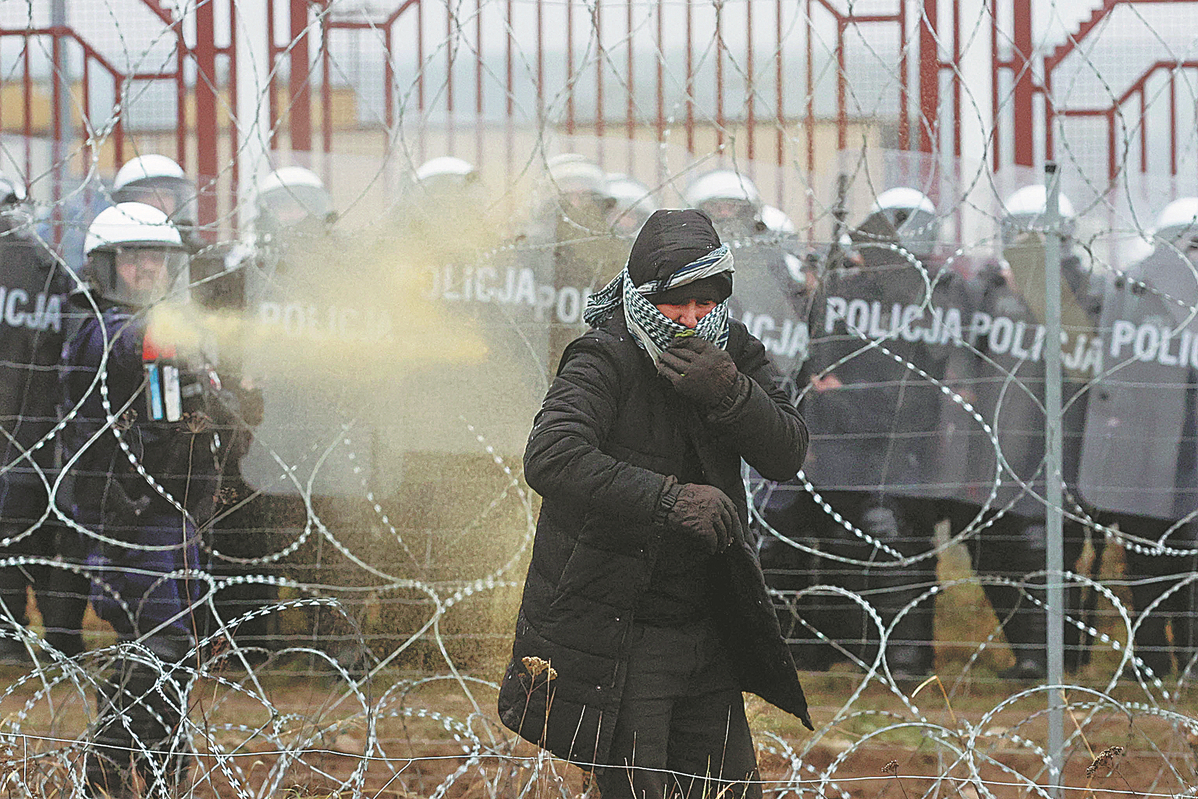Border tensions fan flames of migration politics


Legitimate fears
International accords define refugees as people with legitimate fears of violence or persecution, and give them the right to asylum. For many people, the governments in Syria and Afghanistan still pose a severe threat, but the conflicts there have quietened, while Iraq is now relatively secure.
Numerous people in Belarus and Poland left Iraq and Syria to seek economic opportunity, but they do not qualify for asylum.
Now, the migrants are trapped in a potentially lethal international clash.
There has also been an increase in contacts between the EU and the Belarusian leadership. In addition to Merkel's conversations with Lukashenko, the EU's foreign policy chief Josep Borrell has spoken twice to Belarusian Foreign Minister Vladimir Makei, and French President Emmanuel Macron has talked to Lukashenko's main ally, Russian President Vladimir Putin.
But the EU has decided to impose new sanctions against some 30 Belarusian individuals and legal entities, including Makei and Belarusian airline Belavia.
European Commission President Ursula von der Leyen said sanctions may also be placed on officials the EU views as responsible for the migration crisis on the borders between Belarus and EU countries.
Lukashenko has warned the EU to expect an influx of migrants attempting to seek asylum in the near future, as people leave Afghanistan following the takeover by the Taliban.
During his interview with official media outlet BelTA, Lukashenko said the current crisis may soon worsen considerably. "With the Taliban now at the helm in Kabul, many Afghan citizens are looking to Western Europe as a possible destination for asylum," he said.
"The Americans created immigrants, but ordered Europe and Central Asia to accept," Lukashenko added.
EU diplomats said the talks with Lukashenko's government stemmed from a sense that pressure was starting to build on him. European lobbying efforts to cut flights ferrying migrants from the Middle East to Belarus have begun to bear fruit, and Putin's public chiding of Lukashenko over a threat the latter made last week to cut Russian gas supplies to the EU was viewed as a sign of a possible shift in Moscow's attitude.
A senior EU diplomat said: "Putin has started to rein in Lukashenko publicly on the gas transit. He[Lukashenko] is under a lot of pressure and we are now possibly seeing the first signs of de-escalation from the regime."
This month, during an emergency parliamentary session after visiting troops on the border, Polish Prime Minister Mateusz Morawiecki publicly accused Russia of being behind the migrant crisis.
"This attack which Lukashenko is conducting has its mastermind in Moscow-the mastermind is President Putin," Morawiecki said.
























